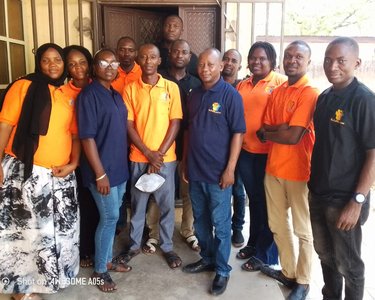Effective humanitarian response requires leadership and action from those most directly connected to the crisis.
Building resilient, sustainable humanitarian solutions depends on strengthening the capacity of local actors. This is especially true in low- and middle-income countries (LMICs), where communities are often at the forefront of humanitarian challenges but are frequently marginalised or excluded from humanitarian research and innovation.
Local expertise to drive lasting change
Central to our approach is the belief that local expertise is essential for sustainable change. We are committed to enhancing the knowledge, skills, and leadership of our LMIC-based partners through targeted capacity-strengthening initiatives. These initiatives are designed to address the imbalances in how humanitarian research is typically conducted. Our support includes:
- Capacity-strengthening programs
- Mentorship opportunities
- Knowledge-sharing platforms
These initiatives aim to empower local stakeholders and create a more equitable and effective humanitarian sector.
A key component of our System Innovation Partnerships (SIPs) is the inclusion of LMIC-based researchers through the UKHIH Fellowship Scheme. This programme is designed to train and develop individuals who are experts in their fields and integral to the success of our work.
Since its launch in 2021, the Fellowship Scheme has funded 12 fellows from countries including the UK, Philippines, Kenya, Uganda, Cameroon, Nepal, Palestine, Egypt, and Yemen. Our fellows have brought invaluable insights and community connections, transforming the outcomes of our SIPs through rigorous research and creative innovations.
The fellowship focuses on three key areas:
Hear from our Fellows
Learn more about the experiences of our fellows and the impact of the fellowship programme.
Institutional capacity building
We are also exploring opportunities to provide core funding for capacity-strengthening and exchange activities with academic partners in LMICs.
Through these partnerships, we aim to foster lasting collaborations that extend beyond short-term interventions.
Our goal is to facilitate knowledge transfer, resource sharing, and the development of innovative tools to promote more equitable partnerships and enhance the capability of local institutions to lead humanitarian research and innovation.
To date, we have partnered with the Childcare and Wellness Clinic in Nigeria on the PULSE Community Engagement Project. In this collaboration, local researchers were equipped with essential skills to conduct qualitative research in the field. Our training program covered research methodologies, data collection techniques, ethical research practices, and quality assurance measures. Local researchers participated in mentoring, training workshops, and hands-on practice to apply their new skills in real-world settings.
